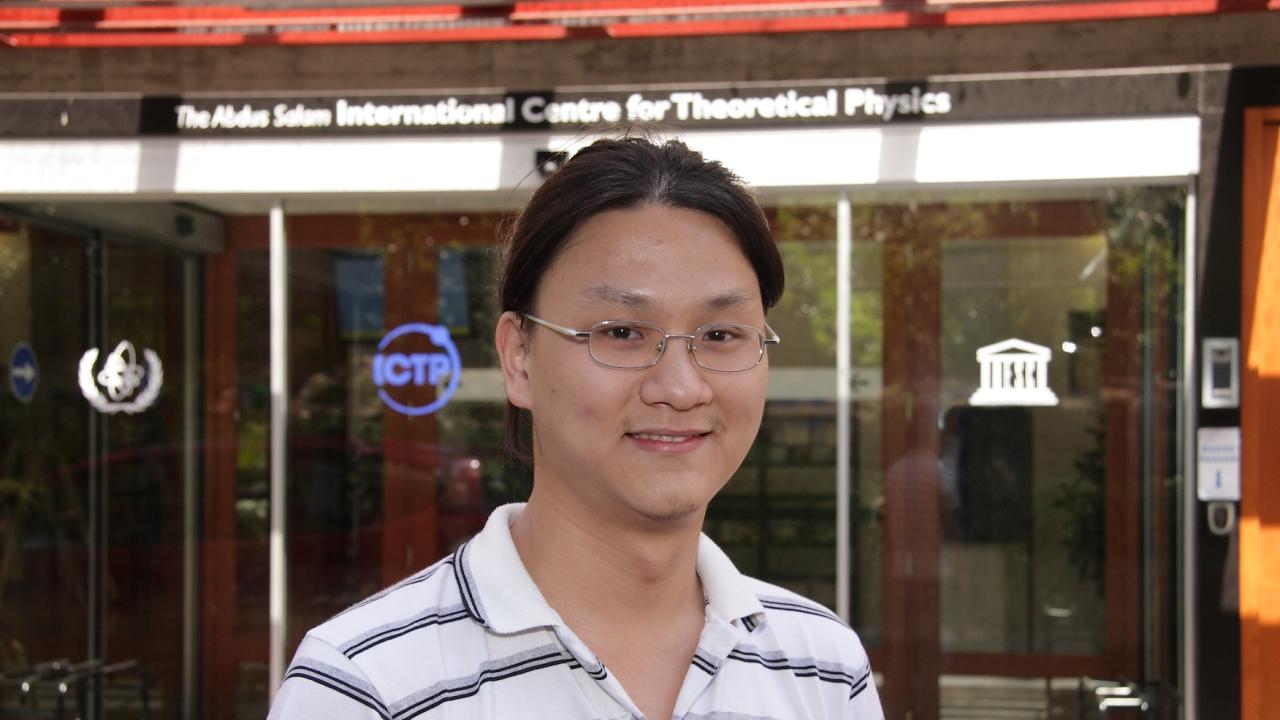
Chakrit Pongkitivanichkul's scientific career began as a teenager who enjoyed mathematics at Samsen Wittayalai High School in Bangkok, Thailand. As he got older he came to love how physics describes nature using math as its language. Now, thanks to ICTP, he's able to study that curious aspect of reality at its deepest levels, exploring what string theory could say about dark matter in the universe.
"I love mathematics, and since then I learned about physics, and that's why I feel that physics can use mathematics also," said Pongkitivanichkul. His college education in physics was possible thanks to a scholarship for students who want to pursue science further. Now he's a diploma student working in their high energy physics section under ICTP physicist Bobby Acharya.
His says his basic physics education in Thailand was strong, but it's hard to do cutting-edge physics experiments there. A huge expensive particle accelerator, for example, is just out of the question. He would like to return there to teach, but for now he has to learn more about theory, which he says he is getting at ICTP. His favorite part of being here are the classes he couldn't get normally, because they're often more like a discussion than a lecture. "They teach differently here than they do in Thailand," he said. "At ICTP, the professors have a more open way of teaching. The students feel more free to debate."
The aim of Pongkitivanichkul's thesis is to find a mechanism to determine the Universe-wide density of dark matter -- invisible sources of gravity thought to hold whole galaxies together. There is a standard theoretical explanation, Pongkitivanichkul said, but recent findings have suggested that the current standard is not good enough. So Pongkitivanichkul and his colleagues are looking for a new value that pins down the dark-matter density figure.
"I want to do something more theoretical, to use theory to find some models to describe nature," said Pongkitivanichkul. "But there's not much in the field of theory in Thailand. I always wanted to get involved in the theory part, so that's why I really want to be here."
More than anything, Pongkitivanichkul wanted to study string theory, and the dark matter research was a useful avenue to explore the unification of quantum theory and general relativity. He will now get that opportunity, having been admitted to King's College London. "It's interesting to get your hand in something you can work on in the future," he said.
















